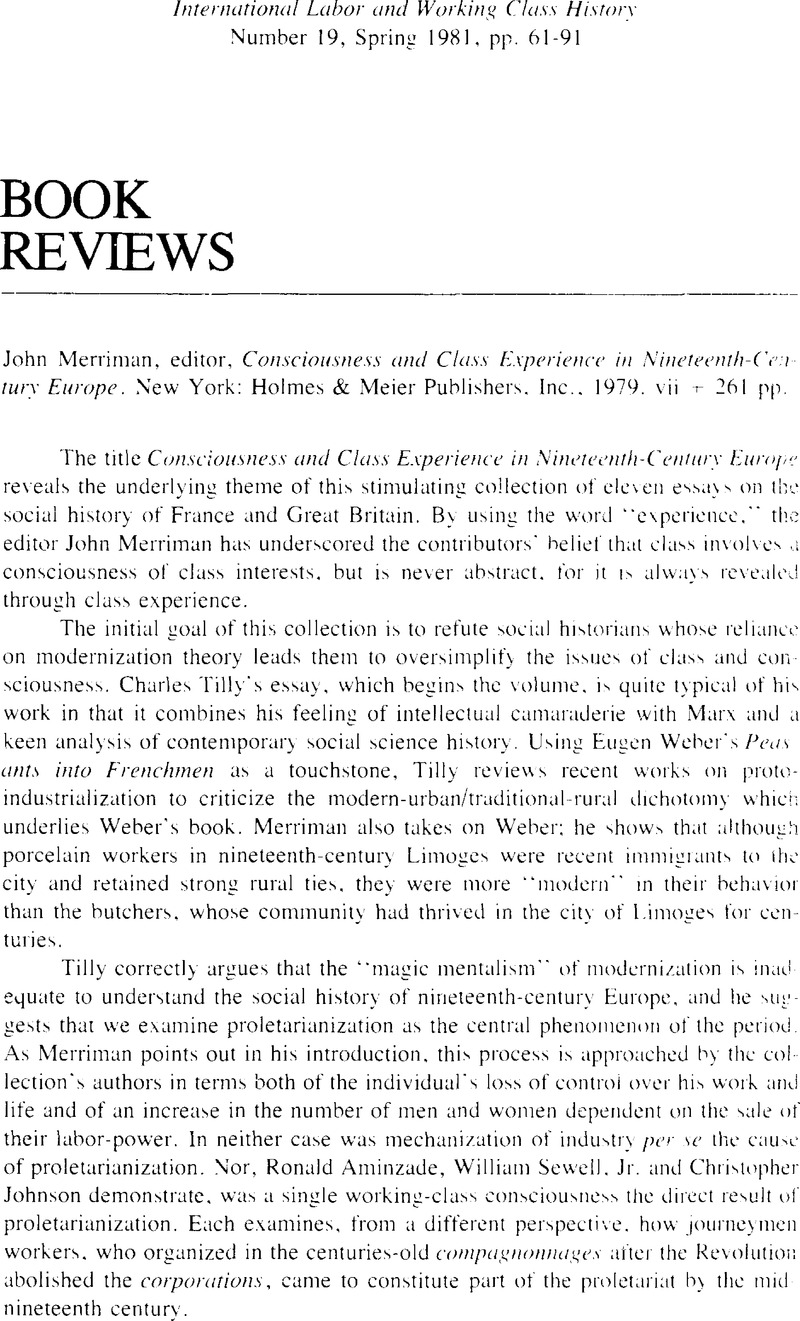No CrossRef data available.
Published online by Cambridge University Press: 16 December 2008

1. Sewell needs to develop the role of the state in his analysis of post-Revolutionary property. For instance, by Napoleonic law the state owned all coal deposits and set the conditions under which concessionaires could exploit them. This arrangement strongly influenced the development of working-class ideology in France during the second half of the nineteenth century.
2. See Johnson's, earlier article: “Economic Change and Artisan Discontent: The Tailors' History, 1800–1848,” in Revolution and Reaction, ed. Price, Roger (London, 1975), 87–114.Google Scholar